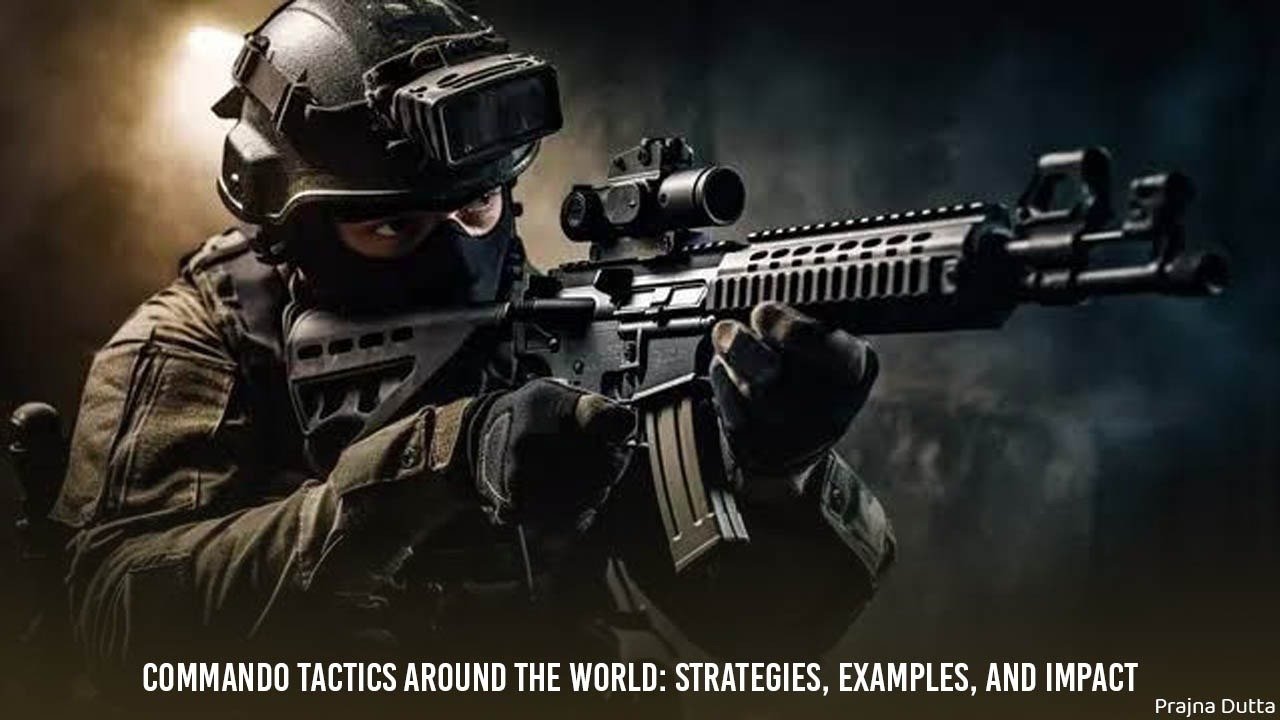Commando tactics have played a pivotal role in military operations around the world, enabling small, highly trained units to achieve strategic objectives with precision and speed. From daring raids to covert missions, commandos have showcased their expertise in various theaters of conflict. In this article, we will explore commando tactics employed by different countries, highlighting some interesting examples, facts, and figures.
1. British SAS (Special Air Service):
The Special Air Service, known as the SAS, is one of the most renowned commando units in the world. Established during World War II, the SAS has been involved in numerous high-profile operations, including the storming of the Iranian Embassy in London in 1980 and the liberation of hostages in Sierra Leone in 2000. The SAS is known for its expertise in covert reconnaissance, counter-terrorism, and hostage rescue missions.
2. U.S. Navy SEALs:
The Navy SEALs are the United States' elite special operations force, specializing in sea, air, and land operations. SEAL Team Six, a unit within the Navy SEALs, gained worldwide recognition for conducting the operation that resulted in the death of Osama bin Laden in 2011. Navy SEALs are trained to operate in diverse environments, from underwater missions to desert warfare.
3. Israeli Sayeret Matkal:
Sayeret Matkal is an elite commando unit of the Israel Defense Forces (IDF) known for its counter-terrorism and intelligence-gathering capabilities. One of its most famous operations was the rescue of hostages at Entebbe Airport in Uganda in 1976. Sayeret Matkal operatives are highly skilled in conducting long-range reconnaissance and special operations behind enemy lines.
4. Russian Spetsnaz:
The Russian Spetsnaz units are elite special forces known for their proficiency in unconventional warfare and counter-terrorism operations. Spetsnaz operatives are trained in a wide range of tactics, including sabotage, reconnaissance, and direct action. These units have been deployed in various conflicts, including the wars in Chechnya and Syria.
5. Indian Para Commandos:
The Indian Para Commandos are a special forces unit of the Indian Army renowned for their expertise in counter-insurgency operations and unconventional warfare. They have been involved in numerous high-risk missions, including the surgical strikes conducted across the Line of Control in Kashmir in 2016. Indian Para Commandos undergo rigorous training to operate in diverse terrains, from mountains to deserts.
6. German KSK (Kommando Spezialkräfte):
The Kommando Spezialkräfte (KSK) is Germany's premier special forces unit, specializing in counter-terrorism, hostage rescue, and direct action missions. Established in 1996, the KSK has been deployed in various operations, both domestically and internationally. The unit is known for its rigorous selection process and extensive training, which includes marksmanship, hand-to-hand combat, and infiltration techniques.
7. French Commandos Marine:
The Commandos Marine are the special forces of the French Navy, specializing in maritime and amphibious operations. These elite commandos are trained to conduct missions in coastal and offshore environments, including raids, reconnaissance, and counter-terrorism operations. The Commandos Marine have a long history of combat experience, dating back to World War II and the conflicts in Indochina and Algeria.
8. Australian Special Air Service Regiment (SASR):
The Special Air Service Regiment (SASR) is Australia's premier special forces unit, known for its expertise in counter-terrorism, special reconnaissance, and direct action missions. The SASR has been involved in various operations, including the war in Afghanistan and counter-terrorism efforts in Southeast Asia. The unit's operatives are highly skilled in conducting long-range patrols and precision strikes.
9. South Korean Special Forces:
South Korea's special forces units, including the Special Warfare Command and the Navy UDT/SEALs, are highly trained elite forces specializing in counter-terrorism, reconnaissance, and unconventional warfare. These units have been involved in operations against North Korean infiltrators and have conducted joint exercises with international counterparts to enhance their capabilities. South Korean special forces are known for their discipline, skill, and readiness to respond to threats.
10. Brazilian Jungle Warfare Training Center (CIGS):
The Jungle Warfare Training Center (Centro de Instrução de Guerra na Selva, CIGS) in Brazil is a specialized training facility that prepares military personnel for operations in jungle environments. Commando units from various countries, including the United States, have trained at CIGS to enhance their jungle warfare skills. The center offers a unique environment for learning survival techniques, navigation, and combat tactics in challenging jungle terrain.
Commando tactics have proven to be invaluable in achieving military objectives with precision and efficiency. These elite units operate in high-stakes environments, often behind enemy lines or in hostile territories, requiring exceptional skills, training, and teamwork. The examples mentioned above offer a glimpse into the diverse and specialized capabilities of commando units around the world, showcasing their adaptability and effectiveness in a wide range of missions.

Comments